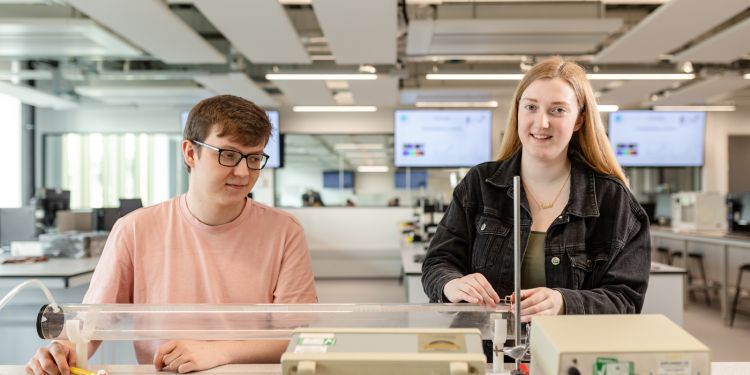Subject pathways within the Natural Sciences degree (2024/25)
Physics

If you choose physics, you’ll delve into the fundamental laws of nature and the universe itself, participating in cutting-edge research alongside renowned academics and researchers. During your first year, you’ll gain knowledge and skills in physics and learn how to apply them to solve problems across fundamental areas including quantum mechanics, thermodynamics and optics. These fundamental theories will be essential as you continue your journey through the world of physics.
If you continue physics on in the second year, you’ll continue to develop your theoretical knowledge of fundamental physics which will include electromagnetism. You’ll also have the opportunity to develop your practical skills in laboratory-based modules and learn about experimental techniques, data analysis and scientific communication.
In the latter years of your degree, your work will be closely linked to our current research. We offer advanced modules on research topics, such as quantum physics, photonics, bionanophysics, molecular simulation, advanced mechanics and cosmology.
If you’re on the integrated Masters programme, your fourth year will give you the chance to take specialist courses from a wide range of options based on current research topics within the School of Physics such as:
- liquid crystals
- Superconductivity
- quantum field theory
- general relativity and black holes
- physics of biological systems
- Astrophysics
For your final year project, you’ll work as part of an internationally recognised research team on an open-ended project with the aim of contributing to the latest physics or interdisciplinary research.
With the knowledge and skills developed from studying physics, you'll be equipped to tackle some of the most challenging problems facing our world today – from developing new technologies to understanding the fundamentals of nature and the universe itself.

